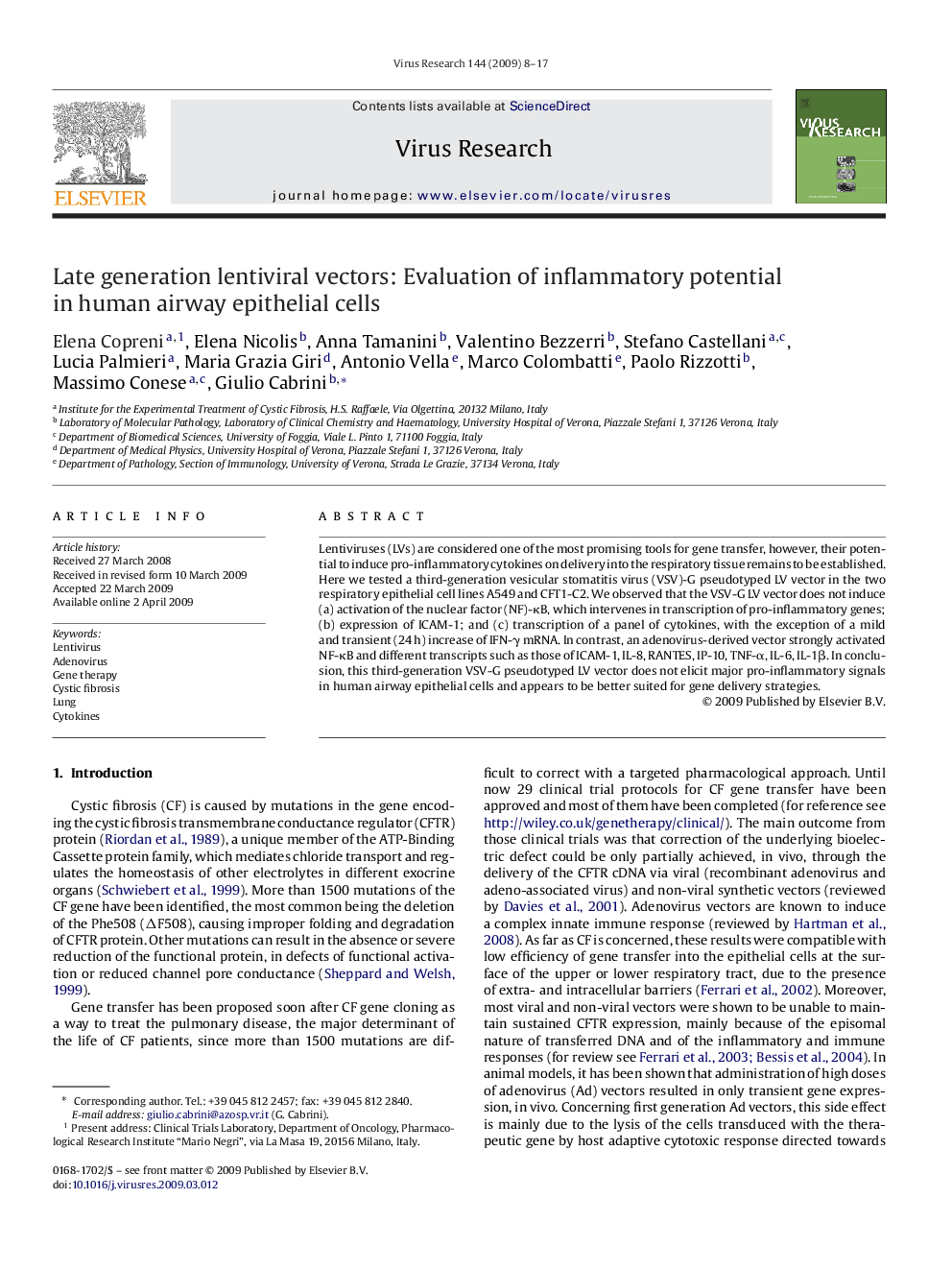| Article ID | Journal | Published Year | Pages | File Type |
|---|---|---|---|---|
| 3429650 | Virus Research | 2009 | 10 Pages |
Lentiviruses (LVs) are considered one of the most promising tools for gene transfer, however, their potential to induce pro-inflammatory cytokines on delivery into the respiratory tissue remains to be established. Here we tested a third-generation vesicular stomatitis virus (VSV)-G pseudotyped LV vector in the two respiratory epithelial cell lines A549 and CFT1-C2. We observed that the VSV-G LV vector does not induce (a) activation of the nuclear factor (NF)-κB, which intervenes in transcription of pro-inflammatory genes; (b) expression of ICAM-1; and (c) transcription of a panel of cytokines, with the exception of a mild and transient (24 h) increase of IFN-γ mRNA. In contrast, an adenovirus-derived vector strongly activated NF-κB and different transcripts such as those of ICAM-1, IL-8, RANTES, IP-10, TNF-α, IL-6, IL-1β. In conclusion, this third-generation VSV-G pseudotyped LV vector does not elicit major pro-inflammatory signals in human airway epithelial cells and appears to be better suited for gene delivery strategies.
